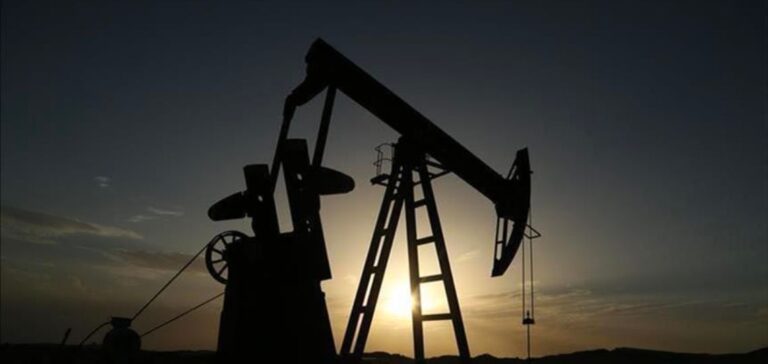Oil prices were up on Wednesday, boosted by fears of an escalation of the conflict in Ukraine, after the Russian president said he was ready to use “all its means” of defense, including nuclear.
Around 09:05 GMT (11:05 in Paris), the barrel of Brent North Sea for delivery in November took 2.12% to 92.54 dollars. U.S. West Texas Intermediate (WTI) for delivery in the same month, which was the first day of use as a benchmark contract, climbed 2.13% to 85.73 dollars.
Vladimir Putin announced on Wednesday a “partial mobilization” of Russians of fighting age, 300,000 reservists, paving the way for a major escalation in the conflict in Ukraine.
The prices of the two global crude oil benchmarks then jumped by almost 3%.
The Russian president also hinted that he was ready to use nuclear weapons to defend Russia against the West, which he accuses of being determined to destroy his country.
A latest development that PVM Energy analyst Stephen Brennock calls “an obvious escalation in the war” that is expected to “reinforce the increasingly bleak and uncertain outlook for the global economy.”
“This news has reignited fears that the invasion of Ukraine could escalate into a larger war, which would impact oil supplies to global markets,” commented Ricardo Evangelista, analyst at ActivTrades.
A further escalation of the conflict could indeed trigger “new Western sanctions, in a dynamic that could lead to further reductions in the volume of Russian oil,” continues Evangelista.
Until then, the concern was more about demand, with concerns growing about the economic downturn.
The market is also awaiting Wednesday’s release of U.S. oil inventories by the U.S. Energy Information Agency (EIA).
Analysts expect a 2.2 million barrel increase in commercial crude reserves, but also a 450,000 barrel decline in gasoline, according to the median of a consensus compiled by Bloomberg.
On the natural gas market, the Dutch TTF futures contract, the European market benchmark, moved up to 212.255 euros per megawatt hour (MWh) after the Russian president’s statements, but was still down nearly 40% from its recent peak at the end of August at 342.002 euros, close to the all-time high.






















